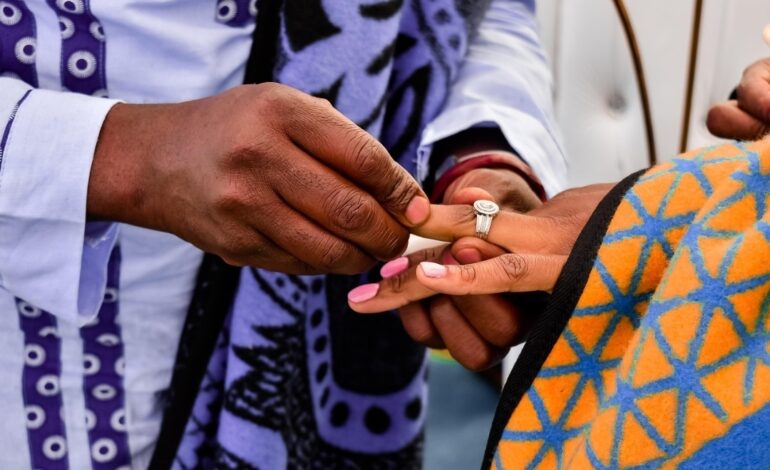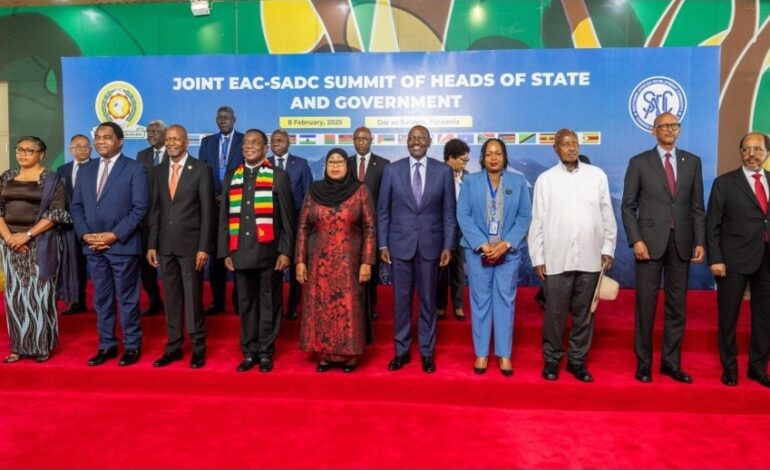
Amondi Oware
Girl meets boy. He is tall, dark and are those dimples? They lock eyes. He is on the other end of the room. Suddenly, everything moves in slow motion. The song in the back ground Disko by Kodongklan now sounds like an orchestra.
They are at Quiver a club in Kilimani, Nairobi the heart Kenya. He approaches. He smells divine. He is Otis and she is the most beautiful thing he has seen in a while. She chuckles, her knees weak. She is Wamoshe and she is ready to bear his children. In the following weeks, she spends most days at his house. They decide to just move in together because half of her things are already there and she is a great cook.
This is a modern-day love story. Two years down the line, her mother is concerned. Wamoshe is technically a wife and her boyfriend/husband has not paid respect to her family. Otis has no problem with that. At least Wamoshe has proven to be an ideal wife with good character. Besides, Otis’ mother gets along with his girlfriend/wife.
Wamoshe’s family states their dowry requirements. Otis’ family is in utter shock and struggle to pick up their jaws from the floor. One million?! Otis only works in Finance and he is the only one among his seven siblings who made it to university. His father died when he was 2 years old. He is basically the bread winner.
Is dowry payment, popularly known as bride price, still worth it? What is the future of the bride price tradition in Kenya (Africa) – should it continue, be reformed, replaced or abolished?
Mwelekeo Insights, a research company in Kenya conducted nationwide interviews on Men’s attitudes towards the bride price tradition in Kenya. Their research age gap was between 18-45 years old.
According to their findings, the older men still see the value of bride price and fully support it while the younger men are questioning its necessity and are either asking for abolishment or reforms.
For instance, 65% of men proposed that bride price should be cost-shared between the man and woman in light of feminist pushes for gender-equality.
We are at a time where everyone has to adjust everything around the fact that most women are now empowered, especially financially. The reality in Kenya right now is that most women earn more salaries than men even though we are still advocating for equal pay for both genders.
This has made the dynamics in relationships and marriages a bit tricky for everyone. The issue of dowry payment in Kenya was very simple during the days of our forefathers because women were raised to cater for husbands while men were raised to provide for the family. Currently, a man may be interested in marrying a woman earning more than him. In a few cases, which is greatly scorned upon, a woman may help the man pay for her bride price.
Generally, a man meeting the full requirements of the bride price is usually a symbol that he is very capable of taking care of his bride and future children. But why ask for outrageous amounts? Is it still a sign of respect to the family or extortion? Because if it is the argument of the woman being highly educated, then the man is too and both their parents spent a lot of money to get them quality education.
This matter of bride price is one that triggers mixed emotions, especially among women. In many African cultures, marriage is not merely two people coming together – it is the transfer of a woman from her own family into that of her husband. She leaves behind the familiar comforts of home, adopting his name, his household, and often his way of life. Her children by custom, belong to his family. With time, she may find her days revolving around his need and those of their children, to a point that her own dreams and desires slowly fade away. This is why most women fully support the bride price tradition and agree that a man should be the one to pay it in full because he appears to benefits more from marriage.

A couple hanging out /Courtesy/
The economic times in Kenya are currently very tricky with both men and women struggling to meet their daily needs. Most men in urban areas are even postponing the issue of marriage because they feel they cannot afford it. The bride price payment has become an expensive affair, with families quoting outrageous requirements hence most men have currently abandoned the idea of marriage or will only settle down with a woman willing to do the ‘come we stay’ marriage.
According to the research done by Mwelekeo Insights, some of the other alternatives given by Kenyan men to bride price tradition other than cost sharing with wife include, gradual payment of the bride price, bride price as a reward scheme for good behavior, women paying bride price instead and abolishment of the bride price tradition.
A high majority of the men (83%) are for the idea that bride price should be gradually paid throughout the marriage period due to financial burdens and the high rate of marriage breakdown. An overwhelming 89% of men supported the idea that bride-price should be a husband’s reward for his wife’s good behavior, and not a prerequisite tradition as is the case currently.
A minority were for the idea that women should pay the bride price instead since it is important to their families. Even though most men are for the bride price tradition, 48% support its abolishment arguing that times have changed and we should embrace modern ways of appreciating families.
In conclusion, a majority of Kenyan men support the bride price tradition, arguing that it is part of our cultural identity; the other minority though are questioning its relevance and are advocating for reforms or abolishment in the wake of financial struggles and women empowerment.
What are your perspectives given the prevailing socio-economic dynamics? Should the bride price cost be shared? Should we make this an African/ global conversation?








